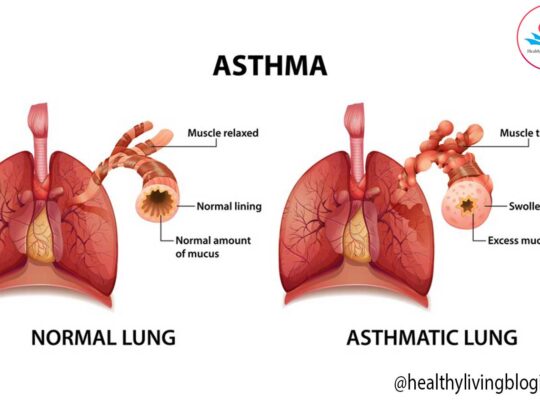Personal growth is a journey about developing your potential skills and understanding yourself. Personal growth entails the continuous development of an individual’s potential and abilities in emotional, intellectual, spiritual, and physical aspects. It involves activities such as self-reflection, goal-setting, seeking new experiences, and learning from challenges. This process leads to increased self-awareness, resilience, and overall fulfillment as individuals strive to become the best version of themselves.

Major Factors Affecting Personal Growth in Day-to-Day Life
Personal growth is influenced by a variety of factors that shape an individual’s development and progress. Some of the major factors affecting personal growth in day-to-day life include:
- Mindset and Attitude: A positive and growth-oriented mindset can significantly impact personal development. Embracing challenges, learning from failures, and maintaining an optimistic outlook can foster continuous growth.
- Learning and Education: Continuous learning, whether through formal education, self-study, or experiential learning, plays a crucial role in personal growth. Acquiring new knowledge and skills broadens perspectives and enhances personal development.
- Relationships and Social Environment: Interactions with family, friends, colleagues, and the broader social environment significantly influence personal growth. Supportive relationships, effective communication, and exposure to diverse perspectives can contribute to growth and self-discovery.
- Health and Well-being: Physical and mental well-being are fundamental to personal growth. Taking care of one’s health, managing stress, and prioritizing self-care create a strong foundation for growth and development.
- Goal Setting and Resilience: Setting meaningful goals, maintaining resilience in the face of challenges, and being adaptable are essential for personal growth. Overcoming obstacles and staying committed to personal aspirations foster growth and development.
- Self-Reflection and Personal Development Practices: Engaging in self-reflection, introspection, and personal development activities such as meditation, mindfulness, or journaling can facilitate self-awareness and growth.
- Adaptability and Change: Embracing change, being open to new experiences, and demonstrating adaptability are key factors in personal growth. Flexibility and a willingness to step out of one’s comfort zone contribute to continuous development.
- Purpose and Passion: Identifying one’s purpose, pursuing passions, and aligning daily actions with personal values play a significant role in fostering personal growth and fulfillment.
These factors interact and influence each other, creating a dynamic environment for ongoing personal growth in day-to-day life. By recognizing and leveraging these factors, individuals can actively participate in their own development and cultivate a fulfilling and meaningful life journey.
Things to let go in life for personal growth:

- Fear of failure: Many people experience fear of failure, which can prevent them from taking risks and exploring new opportunities. The apprehension of not succeeding can hold individuals back from pursuing their goals and dreams, ultimately limiting their potential for growth and success.
- Regrets about the past: Dwelling on past mistakes and missed chances can hinder personal growth and prevent individuals from moving forward. It’s essential to learn from the past, but ruminating on regrets can be detrimental to one’s well-being and ability to embrace the present and future.
- Negative self-talk: Constant self-criticism and negative inner dialogue can diminish confidence and contribute to a pessimistic outlook. Over time, this can impact overall mental and emotional well-being, making it crucial to develop positive self-talk and self-compassion.
- Toxic relationships: Unhealthy and detrimental relationships can drain energy and impede personal development. Recognizing and addressing toxic relationships is essential for creating a supportive and nurturing environment conducive to personal growth and well-being.
- Trying to please everyone: Constantly seeking approval from others can lead to neglecting one’s own needs and desires. It’s important to prioritize self-care and authentic self-expression rather than constantly striving to meet the expectations of others.
- Perfectionism: Striving for flawless outcomes can lead to undue stress and hinder progress. Embracing a mindset focused on growth and learning from mistakes can be more conducive to personal and professional development.
- Need for control: The insistence on controlling every aspect of life can lead to unnecessary anxiety and frustration. Understanding that some factors are beyond our control and learning to adapt to uncertainty is crucial for overall well-being.
- Guilt and shame: Holding onto feelings of guilt and shame can hinder self-acceptance and personal growth. It’s important to address and let go of these feelings in order to move forward with a positive and compassionate outlook.
- Comparison with others: Constantly comparing oneself to others can lead to dissatisfaction and thwart personal progress. Fostering a mindset focused on individual growth and progress, rather than comparison, is key to cultivating a sense of fulfillment and accomplishment.
- Limiting beliefs: Holding onto beliefs that restrict potential can hinder individuals from pursuing opportunities. Challenging and reframing these limiting beliefs is essential for fostering personal growth and embracing new possibilities.
- Waking up late: Waking up late can hinder personal growth by reducing the time available for productive activities such as exercise, self-reflection, and skill development. Consistently rising late may lead to a sense of wasted time and missed opportunities, impacting motivation and goal achievement. Developing a habit of waking up early can provide extra time for self-improvement activities and contribute positively to personal growth. Establishing a morning routine and starting the day with intention can lead to increased productivity, focus, and a sense of accomplishment, fostering personal development.
- Embracing Exercise for Personal Growth: Engaging in regular exercise not only benefits physical health but also contributes to personal growth. The discipline required to maintain a consistent exercise routine fosters perseverance, determination, and self-discipline. Additionally, as individuals progress in their fitness journey, they often experience improved self-confidence and a sense of accomplishment, which can translate into other aspects of their lives. Moreover, overcoming challenges during exercise can build resilience and mental strength, enabling individuals to tackle obstacles outside of the fitness realm. Therefore, exercise can be a powerful catalyst for personal growth, instilling valuable traits and fostering a positive mindset.
- Wasting Time on Social Media and Its Impact on Personal Growth: Spending excessive time on social media can hamper personal growth by consuming valuable time and attention that could be directed towards self-improvement. Constantly scrolling through social media feeds may lead to a lack of productivity, reduced focus, and decreased motivation to pursue personal goals. It’s important to be mindful of how much time is spent on social media to ensure that it aligns with personal growth aspirations and allows for meaningful development.







